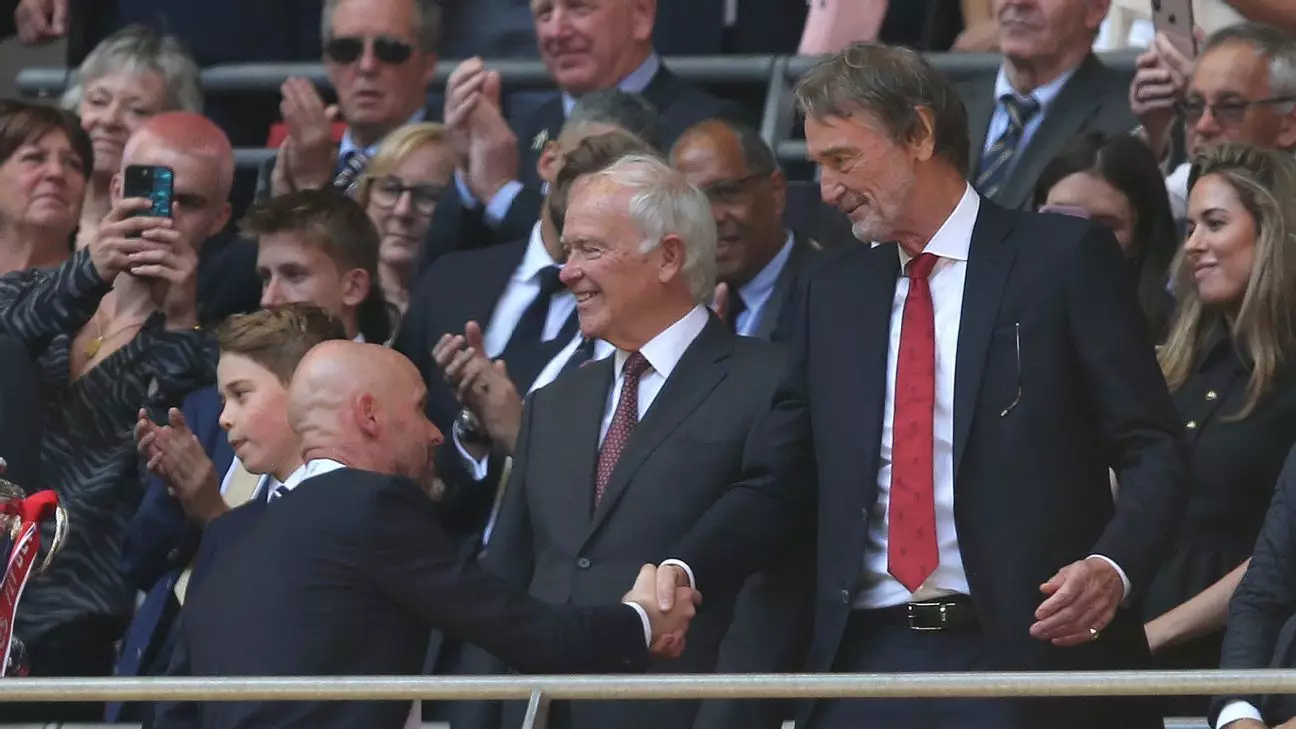The tumultuous climate surrounding Manchester United has recently reached a boiling point, primarily fueled by the struggles of head coach Erik ten Hag. With four successive games lacking a victory, the pressure is mounting on Ten Hag, leading to questions about his future at the club. This discontent has been further complicated by the stance of co-owner Sir Jim Ratcliffe, who has not given any solid reassurance regarding Ten Hag’s position. Ratcliffe explicitly conveyed that such decisions are beyond his purview, highlighting a disconnect between ownership and management.
When questioned about his support for Ten Hag, Ratcliffe’s reluctance to provide a definitive answer hints at larger underlying issues. His acknowledgment that the determination regarding Ten Hag’s fate rests with the management team reflects the shifting dynamics within the club post-Ratcliffe’s acquisition of a 27.7% stake earlier this year. This comment exposes a potential lack of unity and shared vision among the leadership, raising eyebrows as fans and analysts alike speculate about the direction in which United is heading.
Following Ratcliffe’s stake purchase, Manchester United’s structural overhaul has been considerable. New appointments, including CEO Omar Berrada and sporting and technical directors Dan Ashworth and Jason Wilcox, signal a move to recalibrate how decisions are made. However, Ratcliffe made it clear that this newly assembled executive team is still finding its footing, further emphasizing that they weren’t in place during key decision-making times earlier in the season, such as the controversial contract extension for Ten Hag.
This raises critical questions: How can a team effectively evaluate its coach’s performance when the new leadership is still adjusting to their roles? Ratcliffe urged this fresh management to take their time in “taking stock” before arriving at significant conclusions, suggesting a possible hesitation or lack of confidence that could translate into critical decisions regarding the head coach.
Despite the current challenges, Ratcliffe insists on a clear and committed objective—revitalizing Manchester United. He articulated a desire to restore the club to its former glory, though he conceded that the current state falls short of such aspirations. The call for sensible decision-making suggests a more cautious approach toward management changes, which could lead to a prolonged period of instability.
As Ten Hag prepares for an essential clash against Aston Villa, the looming specter of his precarious position weighs heavily—not just on him, but on the entire club. The ambiguous support from Ratcliffe, combined with a shifting executive landscape, casts doubt over Manchester United’s future and raises the question: Can the club weather this storm and find a coherent path forward, or will the uncertainty about its leadership ultimately undermine its ambition? Only time will tell if the new management can stabilize the situation and execute a strategy conducive to success, or if decisive action regarding Ten Hag will be inevitable in the near future.


Leave a Reply